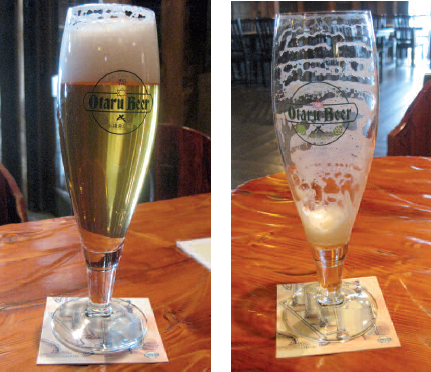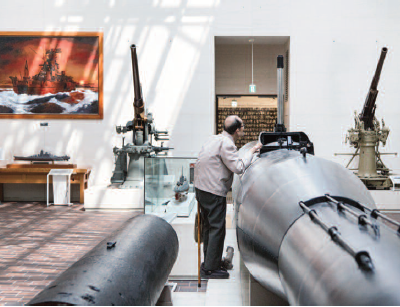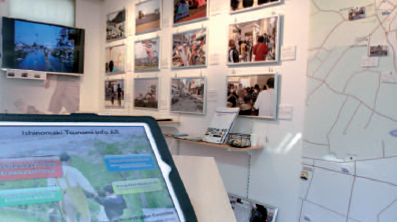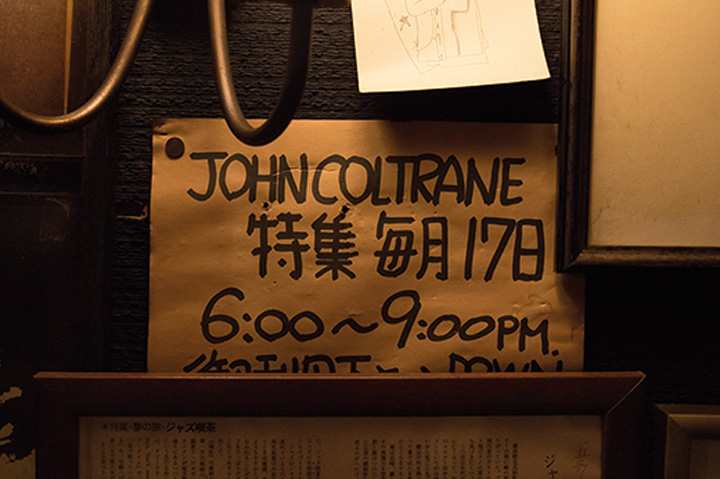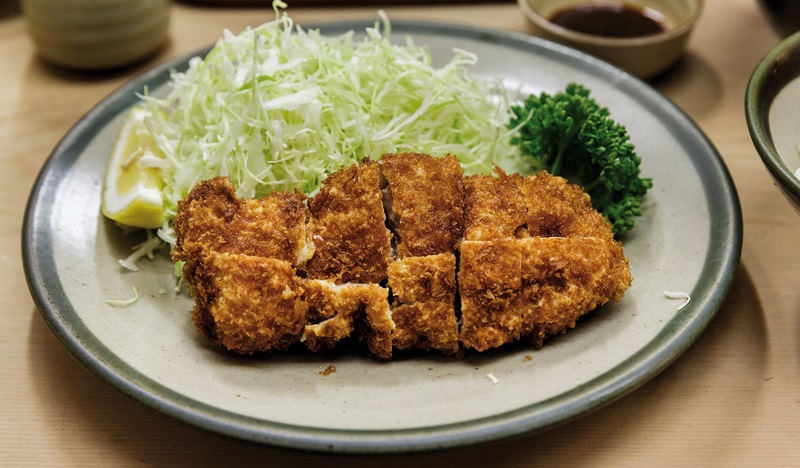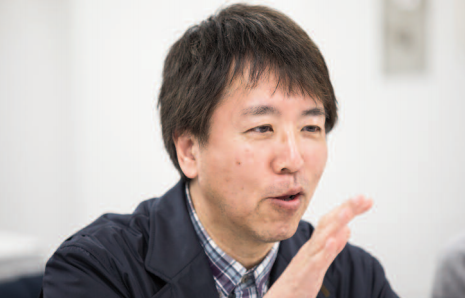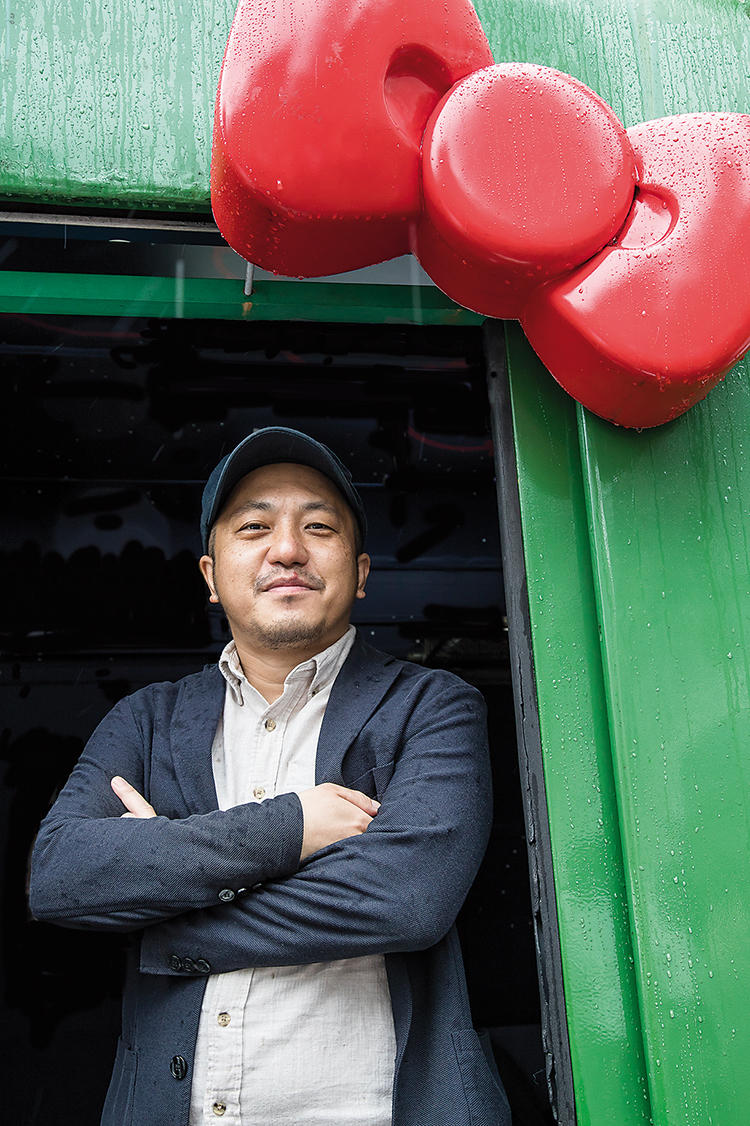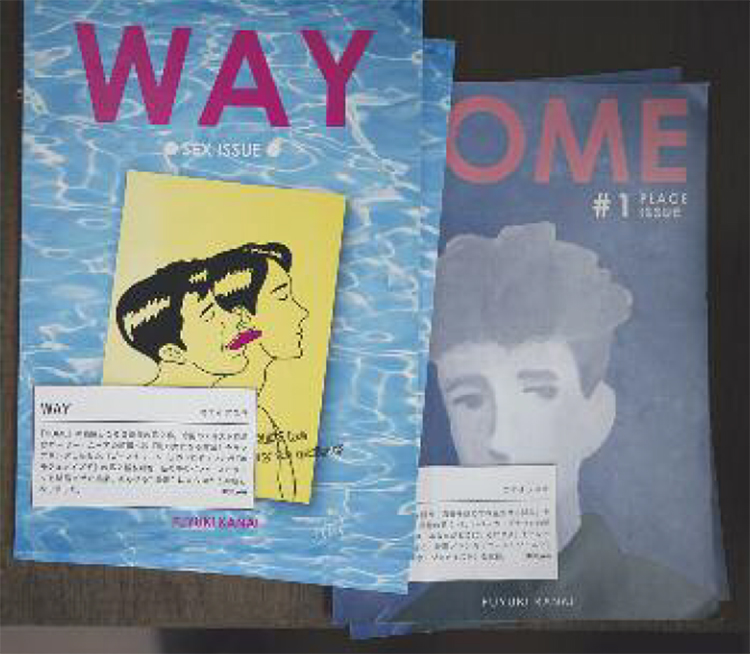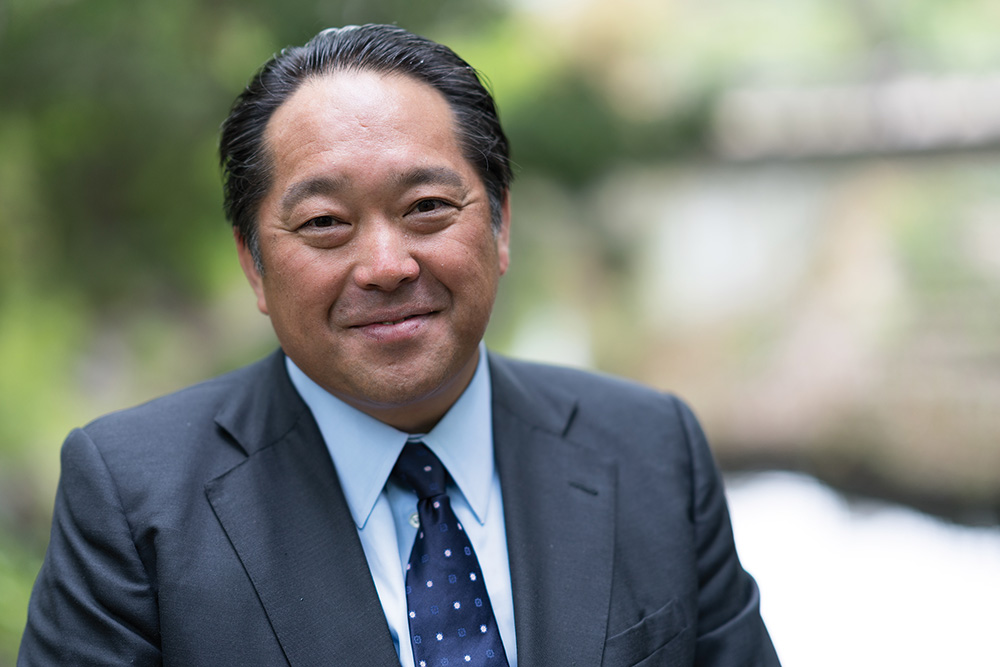
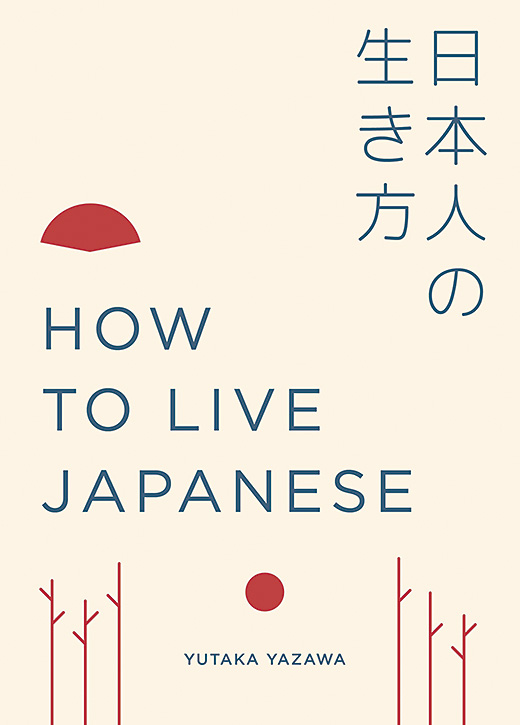
YAZAWA Yutaka’s book was published in U.K. (White Lion Publishing, £20).
After a long period abroad, YAZAWA Yutaka has had to reacquaint himself with Japan. He shares his experience with us.
YAZAWA Yutaka is a British-educated Japanese lawyer who last year published his first book, How to Live Japanese. It’s an interesting introduction to life in Japan, providing information about culture and food, hobbies and traditional values and customs. Having spent more than 20 years abroad, Yazawa considers himself both an insider and an outsider, and explains both what he likes and what he finds puzzling about his home country.
According to your book you’re from Tokyo.
YAZAWA Yutaka: Yes, I was born and raised in Katsushika ward, in eastern Tokyo. Many Japanese see it as a quintessential shitamachi, bluecollar area, but today it looks quite different from my childhood years. Tokyo is very much a scrap-and-build city that changes endlessly with no regard for tradition, always chasing the new. It’s a pretty new city as it was only founded in the 17th century, and even many of its inhabitants are new. Many current Tokyoites moved to Tokyo from different parts of Japan when they entered university or came to look for a job, and have basically been rootless for all these years. So when they retire they realise Tokyo is not their real home, but at the same time they can’t go back, it’s too late.
How about your family?
Y. Y.: My family has lived in the same place for nine generations, since the beginning of the Edo period. However, since my birth in 1970, I’ve seen my hometown – which was originally in a rural area – become a factory town and then a commuter town full of shopping malls. There used to be a paper mill in my district, and when they tore it down, so many mice came out of it that the whole place was flooded with them.
Katsushika ward used to be famous for its many toy makers.
Y.Y.: Exactly, they even made a Japanese version of Barbie called Licca-chan. I remember they even came up with a Licca-chan Telephone to promote the doll. If you called that number you could talk to a professional voice actor who pretended to be Licca-chan. She went like, “Thank you for calling, I’ve been so busy with my homework…” However, this telephone number was very similar to our number and we had a lot of wrong calls. One day, my grandmother pretended to be Licca-chan, just for fun, but it wasn’t such a good idea because after that we got even more weird calls.
How did you end up living overseas for so many years?
Y. Y.: I always wanted to travel abroad. when I was 19, I quit university and went to the UK to study English – which didn’t go down too well with my parents. Eventually, I managed to pass the university entrance exam and spent the next 11 years studying and working in England as a lawyer. after coming back to Japan for three years, I accepted a job offer from a law firm in Hong Kong where I lived for nine years. after one more year in New York, I returned to Japan for good seven years ago.
How would you compare working in Japan and abroad?
Y. Y.: In Japan, they still use a sort of Karate Kid parlance: lawyers are called sensei, or masters, not only because of their expertise but because their position is associated with high social status. Many consider themselves more like academics, and are rather removed from the practical side of business.
Was it difficult to readapt to life in Japan after living abroad for so many years?
Y. Y.: Actually, when I came back I realised that dating in Japan was so easy (laughs). In my 20s, I played in the so-called international league where being Japanese wasn’t exactly sexy, so I had to make an extra effort (laughs). But when I came back I was single with a good job, and suddenly I was considered a good catch. Joking aside, it was very difficult. Having left Japan at 19, I missed a number of important rites of passage which shape people’s lives here. The ties you make during the four years you spend at university and when you get your first job – which for many people ends up being their job for life – are extremely important in Japan because they give you a sense of belonging and in many respects define who you are. By moving abroad, I cut myself off from those ties, and by the time I came back I realised I was rootless; I wasn’t really part of any group. I had lost touch with my old school friends and had no reference points either from a social or business point of view. I had the constant feeling that I needed to belong to something, but I was left in a sort of social limbo instead. That’s one of the reasons I married my wife.
What do you mean?
Y. Y.: I met my wife in the UK, but when I came back to Japan we broke up. Then I realised she was the person with whom I had the most in common; the only person who could relate to my past experience. when I began dating in Japan, at first I played my “international player” card to my own advantage. However, after a while it got boring. Every woman I met was like, “wow, you’ve spent 11 years in England, that’s amazing!” I mean, no thanks, I don’t want that kind of treatment. My wife, on the other hand, knew what living abroad really meant, and I could be myself with her.
After spending many years abroad, would you say that living in Japan is more complicated?
Y. Y.: You know, in the west you’re expected to be a sort of ‘free agent’. Of course there are all shades of individuality – American and British people are very different in this respect – but, nevertheless, you’re expected to behave as an individual whereas in Japan you’re always aware of the social context, of the environment you’re part of. Having missed ten important, formative years of life in Japan, I lacked the ability to judge this sort of thing and recognise all those telltale signs. I’m not saying that the western way is better, they’re just two different social systems, and it’s difficult to switch from one to the other.
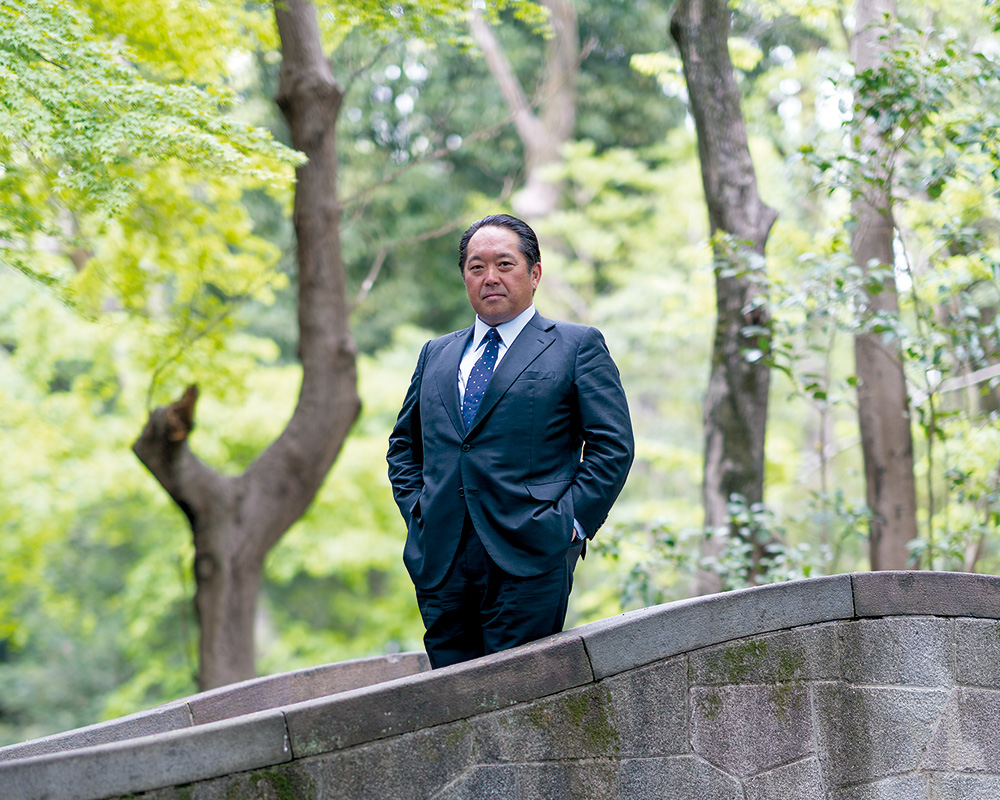
I’ve heard from a number of people that Japanese and British society are quite close in some respects. Do you agree?
Y. Y.: The short answer is yes. Indeed, people in both countries spend an inordinate amount of time talking about the weather and are always careful not to hurt other people’s feelings. They come from tight-knit communities where looking out for each other is very important. at the same time, I find that in the UK social class and hierarchy play a more important role than in Japan, but people have more freedom to define themselves within their own environment. On the other hand, in Japan, there’s more peer pressure: once you become a member of a certain group – be it your school, office or club – you have to follow their rules and put the group’s interests before yours. So I can see both the similarities and the differences between these two countries.
Probably the importance they both give to language is another thing they have in common?
Y. Y.: That’s right. Japanese, British English and even Cantonese, the language they speak in Hong Kong where I lived for nine years, are very discriminating languages. You can tell many things by the way other people talk: where they’re from, their social status, etc. In Japan, in particular, there’s an unfortunate prejudice against people who don’t speak with a standard accent. They’re looked down upon because they’re perceived as unrefined. Even my son had the same problem. He grew up overseas and when we moved back he spoke with a strange accent. This is also reflected in the Japanese obsession with my own English accent. They always talk about wanting to speak the Queen’s English. I mean, what do you care about the English accent when you can’t even put two sentences together?!
In your book you described the strange feeling you have when walking in a crowded Tokyo street (but it could be anywhere in Japan) as everybody looks Japanese. You even mentioned having a sense of claustrophobia. I found that interesting, especially coming from someone Japanese.
Y. Y.: Basically, I’m someone who has seen the other side, so I’m always amazed by the lack of diversity here. You can get the same kind of feeling if you travel to China, but to me, of course, that’s a foreign country and strangeness or otherness is something you expect. On the other hand, Japan is my home country, and yet it feels strange to me to cross Shibuya Crossing and be surrounded by people who look the same and sometimes even wear similar clothes. It takes a little bit of an effort in order to see diversity in this homogeneity.
Do you think Japan (or at least its bigger cities) will ever become the sort of melting pot you’ve experienced in other countries?
Y. Y.: I can only hope so. Of course, the change will be slow and gradual, which is good. I don’t want Japan to repeat the mistake the UK made in the 1950s when, in order to increase their workforce, they attracted huge numbers of immigrants from the Caribbean islands without adequately preparing for the social challenges this entailed. The consequences of that myopic policy is still felt to this day. I hope we will manage immigration better than that, but I’m not really worried about Japanese culture being diluted by immigrants. after all, you need to change in order to stay the same, as a famous Italian author said. I’m hopeful people like tennis player OSaKa Naomi will help people see that skin colour is not so important, and being Japanese doesn’t mean that we all have to look the same.

Regarding the increase of the workforce in his country, YAZAWA Yutaka doesn’t want Japan to repeat the mistake the UK made in the 1950s.
It’s interesting that you mentioned OsAKA Naomi because when a non-Japanese looking sportsman or woman wins, they are immediately accepted and celebrated, but when MIYAMOTO Ariana, whose father is African American, won the Miss Universe Japan contest in 2015, several people grumbled because she wasn’t a typical Japanese beauty.
Y. Y.: Obviously, it’s impossible to achieve integration painlessly. we have to adjust to the growing pains of this process. In my opinion, Japan as a community tends to be quite compassionate, so I hope this good side will prevail over discrimination and the xenophobic tendencies of a minority. as I said, I’ve lived in other countries and seen the pain and the hatred. we must do everything we can to avoid those problems. actually, things are already changing.
Your book does a good job of explaining Japanese culture and society in general term. Is there something in particular that defines Japanese culture?
Y.Y.: Every country has a maxim that’s supposed to be symbolic of that country’s character, but curiously ends up pointing out a fundamental defect within their society. France’s motto, for example, is “Fraternity, Equality, Liberty” because they don’t have any of them. The American Declaration of Independence recites, “we hold these truths to be self-evident, that all men are created equal…” because there’s so much inequality in their society. as for Japan, our first Constitution was supposedly written by Crown Prince Shotoku in the 7th century. Its first article was “we have to respect harmony”, and the reason was that there were so many conflicts at the time. Now, of course, social harmony is seen as one of Japan’s defining characteristics, and it’s true, at least in part. But nobody really knows what Japanese culture is because it’s constantly changing. The Japan I found when I came back seven years ago was certainly different from the country in which I had grown up.
Is there something that a lot of people get wrong about Japan? Or if we put it a little differently, is there something people should know before they visit Japan?
Y. Y.: Very difficult to give a comprehensive answer, but I’d say that the Japanese people’s ability to communicate with non-Japanese speakers is constantly underestimated, especially by the Japanese themselves. we all study English at school and have a rudimentary grasp of the language. It’s just that our language skills are usually judged solely for the purpose of passing exams, so we lack the confidence to use English to actually communicate with other people.
Is there something you have come to realise something you hadn’t realised before or you used to take for granted about Japan – while you were writing your book?
Y. Y.: This is not something I didn’t know beforehand, but I was amazed when I truly came to realise how transient Japan is, in that a snapshot of Japan today is likely to remain valid for only a decade or so. Modern Japan has gone through many upheavals since we opened ourselves up to the world in the mid-19th century. Since then, we’ve experienced rapid modernisation, accepting and then adopting bits of western civilization and culture, industrialisation, taking part in the wars of imperial colonialism, taking part in the world wars, atom bombings, post-war recovery, extreme urbanisation and the decline of the countryside, the progressive aging of the population – and then throw in the odd typhoon and earthquake for good measure. against this background, the “Lost Decade” of economic stagnation is a welcome lull in the breakneck speed of change after change over the last 200 years.
INTERVIEW BY JEAN DEROME

